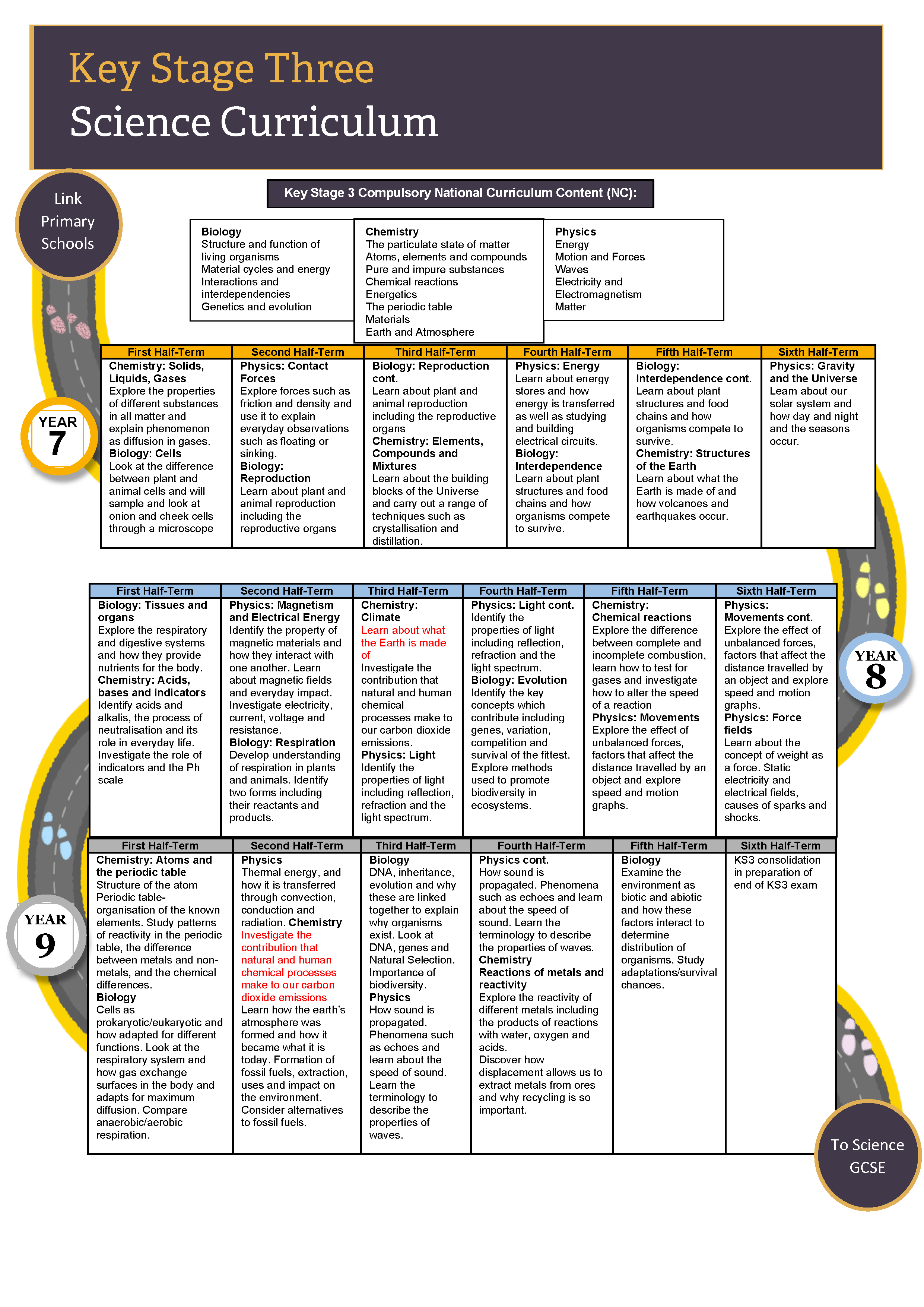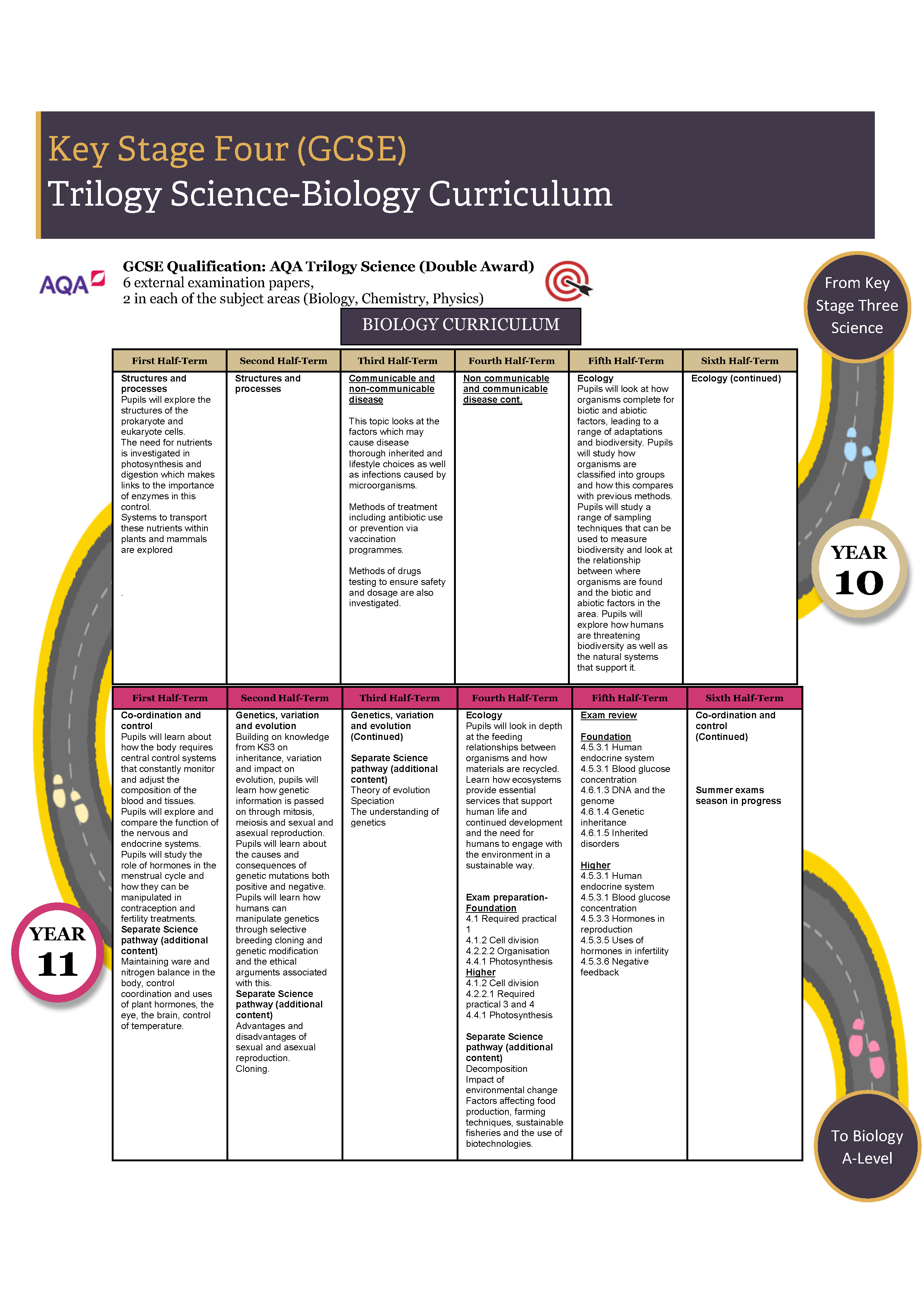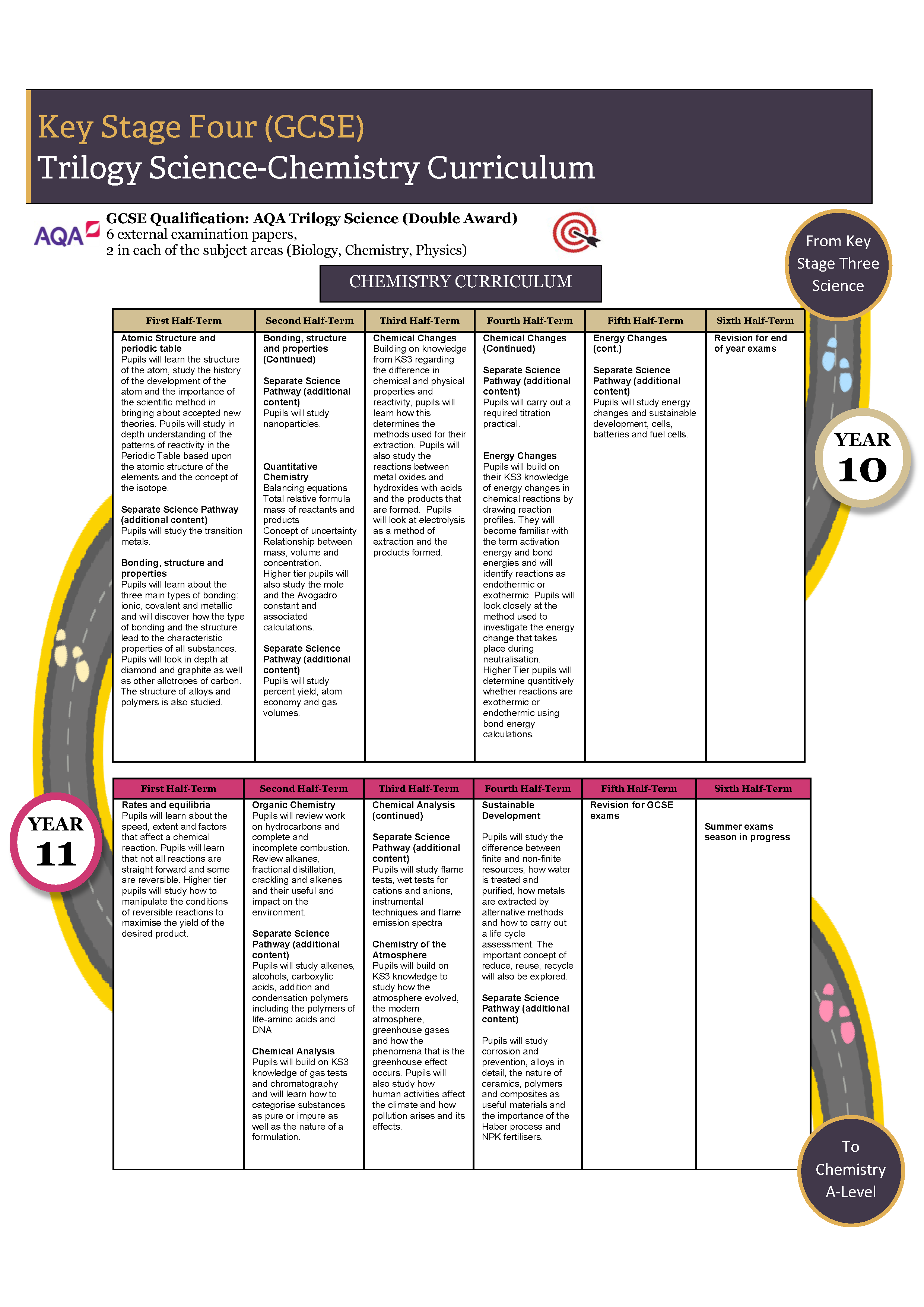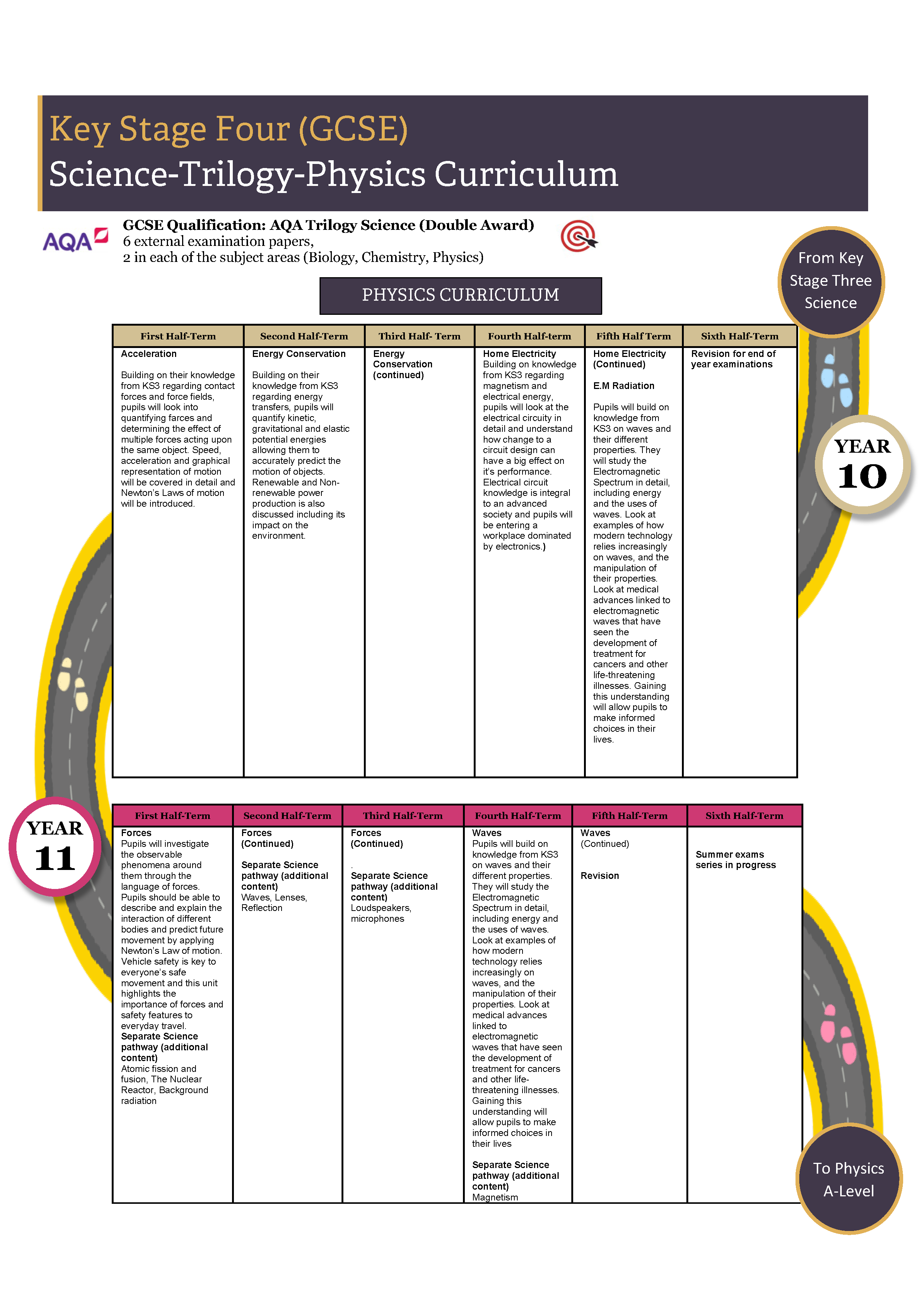Science
Curriculum Intent
At Maricourt we recognise that for learners to move from novice to expert, building a deep body of knowledge is crucial. Without knowledge, learners will not be able to make connections, build schema or have the capacity for skilful performance.
We have considered the research behind how students learn and the role that long-term memory plays in developing fluency in learning and our sciencecurriculum has been designed taking these principles into account.The science curriculum is a mastery coherent curriculum planned so that as students move through topics, they are given the opportunity to revisit key concepts, creating a spiralling effect, building on prior learning whilst also expanding on the range of ideas that are in play. Through a spiral curriculum that links and interleaves concepts within scientific disciplines, students will be able to apply their learning to a wider range of contexts as their understanding develops.
There are other important principles to the science of learning that will be considered in the implementation of the curriculum. For example, the use of retrieval tasks, consideration of the most suitable mode by which to deliver key pieces of knowledge, how to deliberately build word knowledge and confidence, and planned reading opportunities.
Our KS3 curriculum is based around the KS3 Programme of Study, prescribed by the national curriculum. It serves to build on the foundations of science that are covered at KS2. Baseline checks are carried out to reduce repetition and to ensure that any gaps that may exist in students’ knowledge of key concepts are filled before developing deeper and wider understanding. At KS3 students will also begin to develop practical skills that will enable them to predict, investigate, analyse, explain and evaluate what happens in the science lab and begin to apply what they have learned to the world around them.
Our KS4 curriculum is a two-year programme that builds on the foundation of KS3. Through a spiral curriculum that links and interleaves topics within and between scientific disciplines, students learn how to apply ideas to a wide range of scenarios as their understanding develops. Practical skills continue to be a focus and key concepts are discussed through an investigative approach wherever possible. There are two progression routes through the KS4 curriculum, AQA Trilogy and Separate Sciences and students can decide the route that is most suitable for them when they choose their options in year 9. Within each progression route, the scheme of learning is tiered to allow for stretch for the most able and support for those that need it.
Students have the opportunity to study Biology, Chemistry and Physics at A level. The aim of each curriculum is to build on the content from GCSE subjects and enable students to acquire and apply a body of knowledge, methods and techniques that characterise science and technology.
Curriculum Journey




